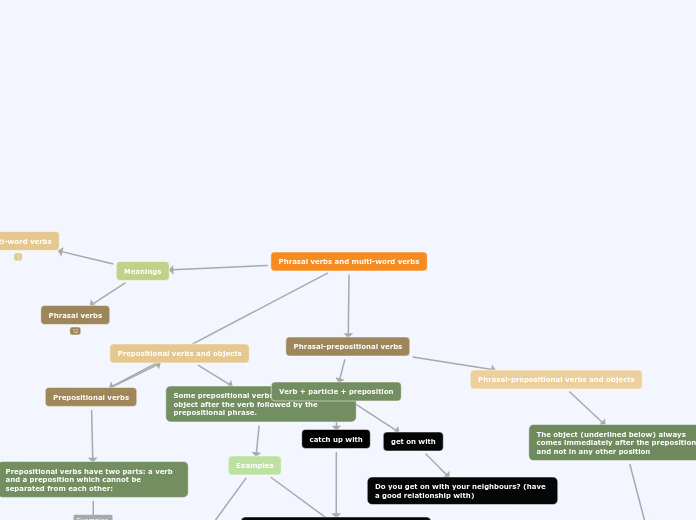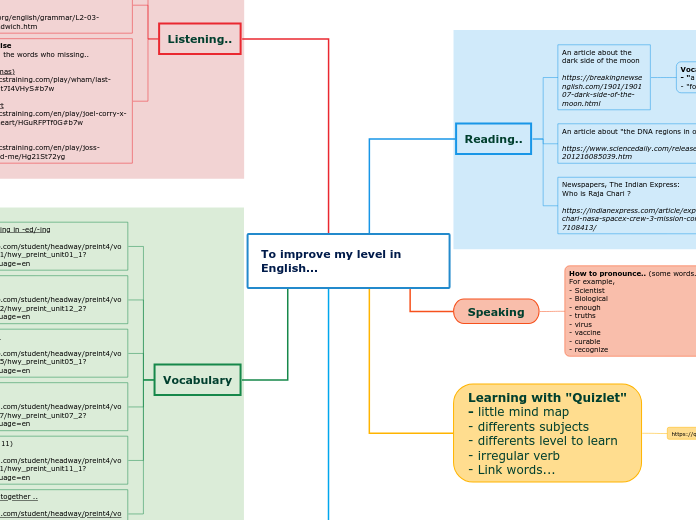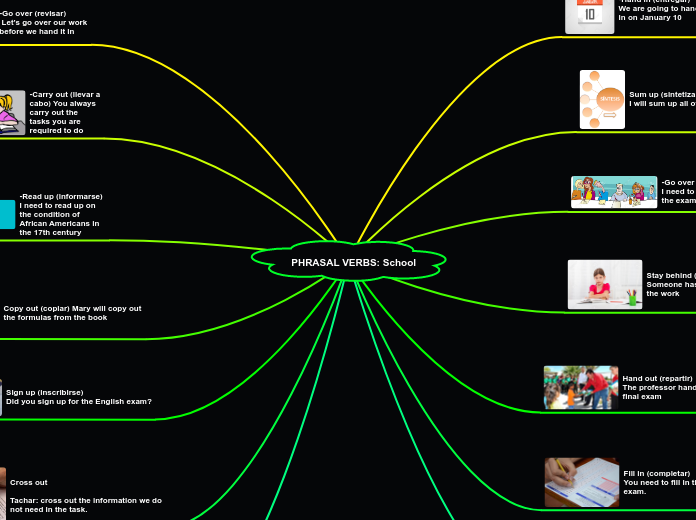Phrasal verbs and multi-word verbs
Phrasal-prepositional verbs
Phrasal-prepositional verbs and objects
The object (underlined below) always comes immediately after the preposition, and not in any other position
She was a wonderful teacher. We all looked up to her. (respected)
Verb + particle + preposition
get on with
Do you get on with your neighbours? (have a good relationship with)
catch up with
Ken’s just chatting to a friend. He’ll catch up with us in a minute. (reach, join)
Prepositional verbs
Prepositional verbs and objects
Some prepositional verbs take a direct object after the verb followed by the prepositional phrase.
Examples
remind … of
protect … from
How can we protect
children from dangerous material on the Internet?
Prepositional verbs have two parts: a verb and a preposition which cannot be separated from each other:
break into (a house), get over (an illness), look after (a child), etc.
Meanings
Multi-word verbs
Multi-word verbs are verbs which consist of a verb and one or two particles or prepositions (e.g. up, over, in, down).
Phrasal verbs
Phrasal verbs and objects
Without objects
break down, get back, move in/out, carry on, etc.
We’d better set off before the rush-hour traffic starts.
What time did you wake up this morning?
Many phrasal verbs take an object. In most cases, the particle may come before or after the object if the object is not a personal pronoun (me, you, him, us, etc.).
I brought my children up to be polite.
She brought up (particle) three kids (object) all alone.
Formality
Phrasal verbs are often, but not always, less formal than a single word with the same meaning.
Informal: We need to sort the problem out Formal: We need to solve/resolve the problem.
Phrasal verbs often have meanings which we cannot easily guess from their individual parts. (The meanings are in brackets.)
The book first came out in 1997. (was published)
The plane took off an hour late. (flew into the air).
The book first came out in 1997. (was published)
The plane took off an hour late. (flew into the air).









